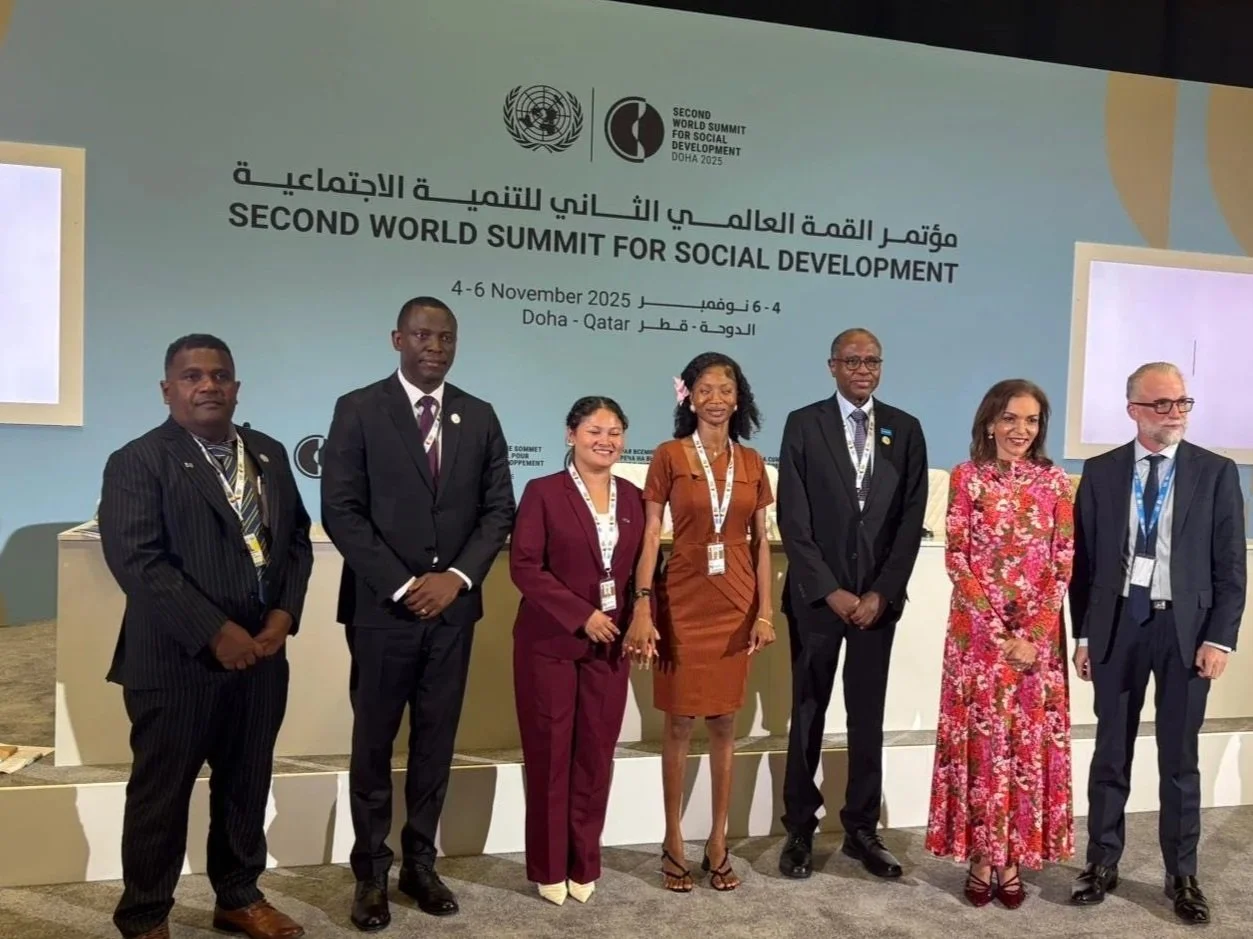Left to right: Hon. Trevor Manemahaga, Minister for National Planning and Development Coordination, Solomon Islands, Hon. Dominique Habimana, Minister of Local Government, Rwanda, Rejina Gharti Magar, GPE Youth Leader, Nepal, Esther Nagatey, International Disability Alliance (IDA), Youth Fellow, Ghana, Omar Abdi, UNICEF Deputy Executive Director, Hon Dr Anne Aly MP, Minister for International Development, Australia and Pascal Bijleveld, CEO, ATscale.
November 5, Doha – On the sidelines of the Second World Summit for Social Development, Australia’s Minister for International Development, the Hon Dr Anne Aly MP, announced a significant USD 10.5 million commitment to ATscale, the Global Partnership for Assistive Technology through the “Unlock Healthy Learning” programme. This funding aims to unlock access to vital vision, hearing, and mobility care for school-aged children in Pacific and Southeast Asia Countries.
This crucial initiative addresses the severe lack of assistive technology in low-income countries, where only an estimated 10% of those in need have access to devices like eyeglasses, hearing aids, and wheelchairs, compared to 90% in high-income countries. Globally, over 34 million children suffer from deafness and hearing loss, and 19 million from visual impairment.
The three-year “Unlock Healthy Learning” programme, delivered in partnership with ATscale, will screen over 500,000 school-aged children across 8 countries (7 in the Pacific and Indonesia). Children requiring assistance will receive eyeglasses, hearing aids, and mobility aids (such as wheelchairs and crutches), devices often unaffordable or inaccessible to families in these communities.The programme is expected to provide approximately 24,400 children with eyeglasses, 7,000 with hearing aids, and 1,200 with mobility aids, significantly improving their ability to learn and play.
ATscale will collaborate with Fiji, Kiribati, Federated States of Micronesia, Solomon Islands, Samoa, Tonga, Vanuatu, and Indonesia to implement and scale up access to assistive technology for school-aged children. The focus will be on integrated screening for vision, hearing, and mobility, and strengthening government service delivery and procurement capacity.
“Australia is proud to expand our partnership with ATscale to help children in the Indo -Pacific access the tools they need to learn, grow, and thrive,” said Minister for International Development the Hon Dr Anne Aly.
“This investment will unlock opportunity and independence for thousands of children and reflects Australia’s deep commitment to advancing disability equity and rights.”
This support is vital as Pacific Island Countries face unique challenges in providing assistive technology and rehabilitation services due to geographic isolation, limited resources, and small populations. Access to assistive technology has a long-term impact on school-aged children, influencing their future success. For individuals in low- and middle-income countries, access to assistive technology from childhood can lead to an additional US$100,000 in lifetime income.
Pascal Bijleveld, CEO of ATscale, stated, “We are grateful for this unprecedented support from the Australian Government. A wheelchair, eyeglasses, or a hearing aid can be the difference between failure or success at school, a job or unemployment, a life of opportunity or dependency. This programme will strengthen the overall rehabilitation system through capacity building, recognizing assistive technology as a human right addressed in multiple articles of the UN Convention on the Rights of Persons with Disabilities.”
During the session, ATscale and UNICEF launched their joint policy brief on Access to assistive technology in education systems, which underscores the vital role of assistive technology in enhancing access to education and learning opportunities for all children.
The brief explores how assistive technology can be equitably and systematically integrated into education systems. Drawing on global evidence and insights from AT users, policymakers, NGOs, development partners, and technical experts in inclusive education, it highlights commonly used and emerging technologies, the benefits they bring to learners, and the systemic barriers that hinder equitable access and use. It also presents recommendations for decision-makers to strengthen national assistive technology ecosystems so that every learner can reach their full potential.
Read the news on Government of Australia website
